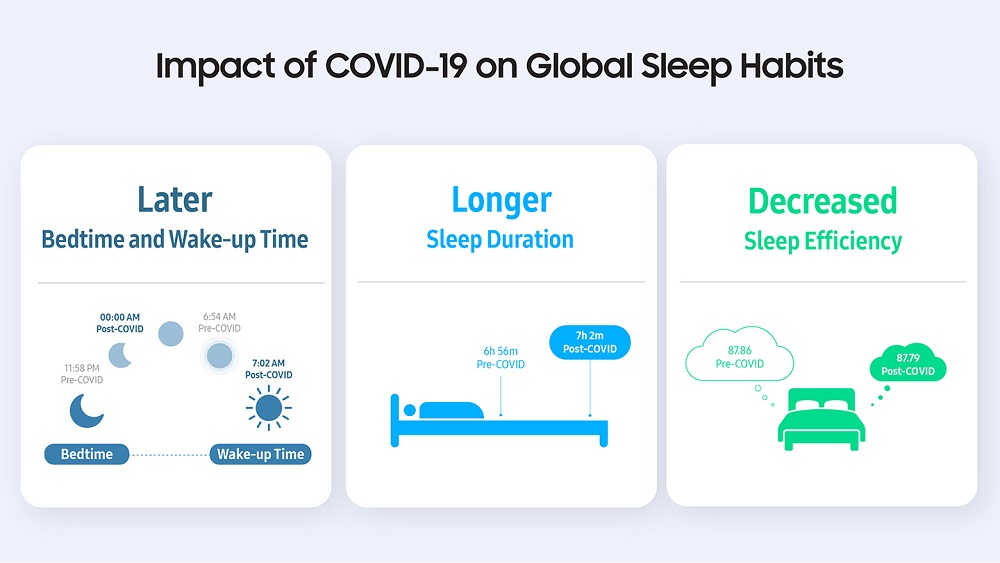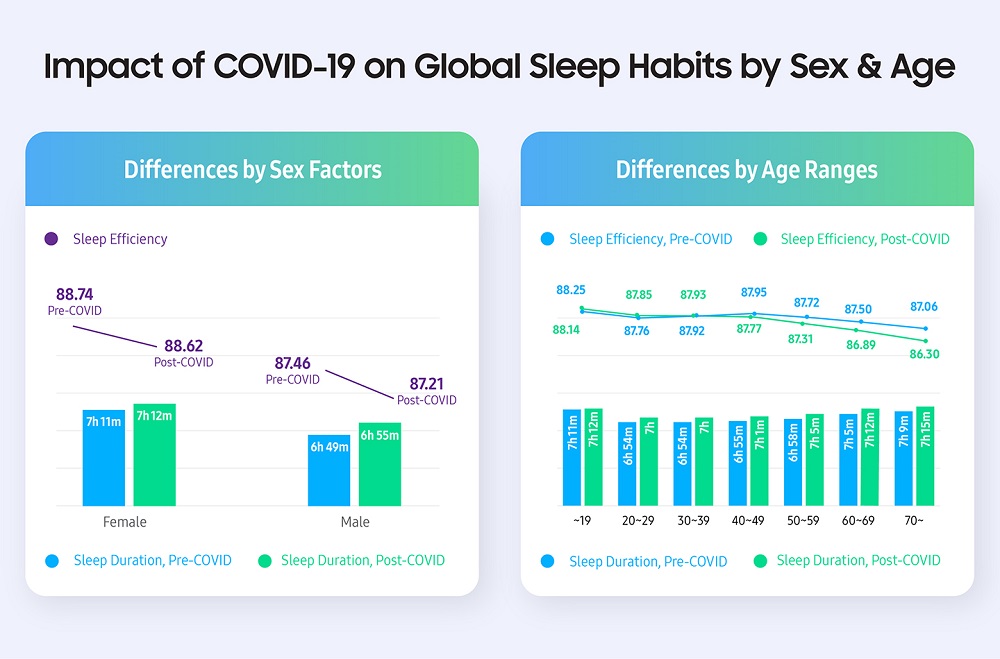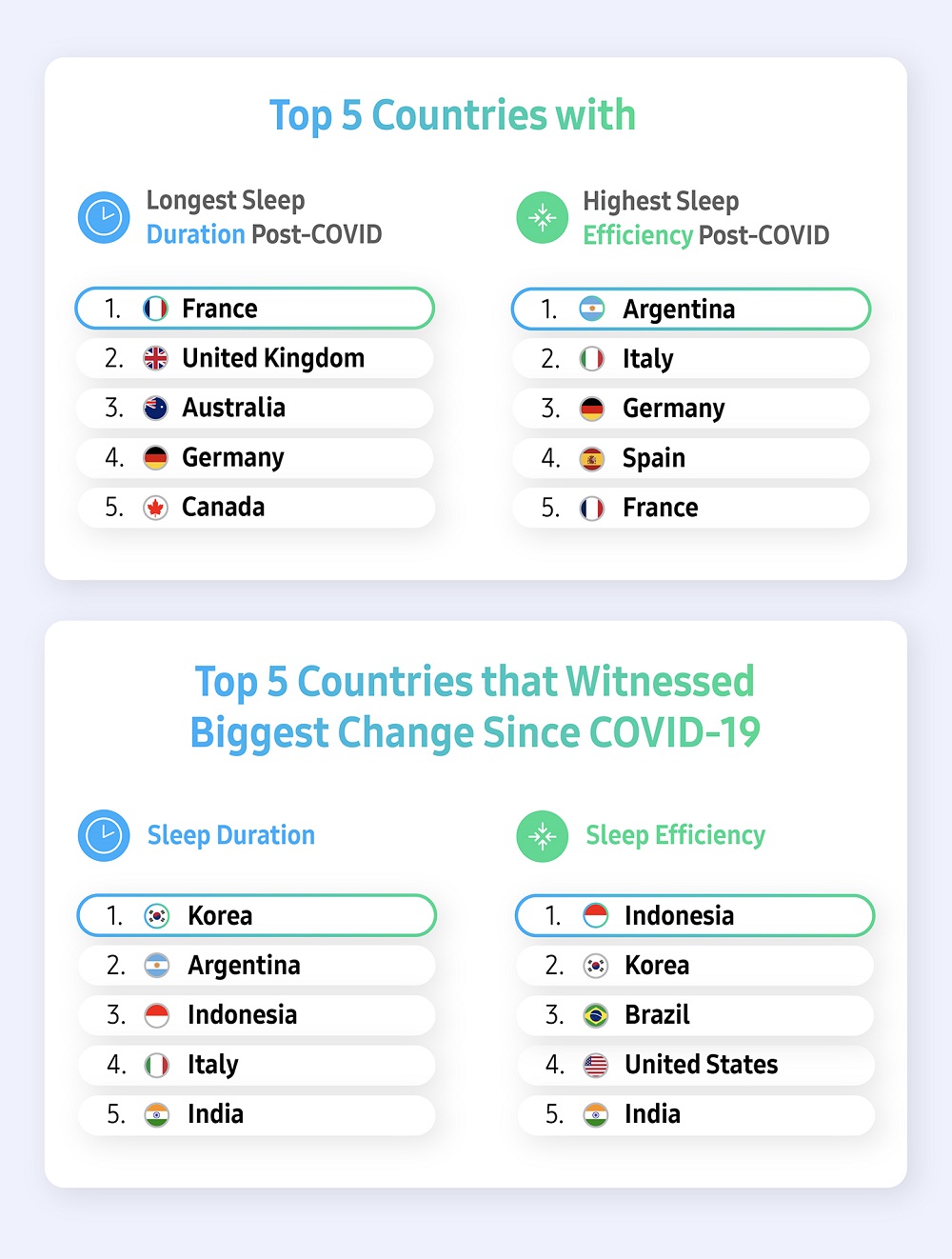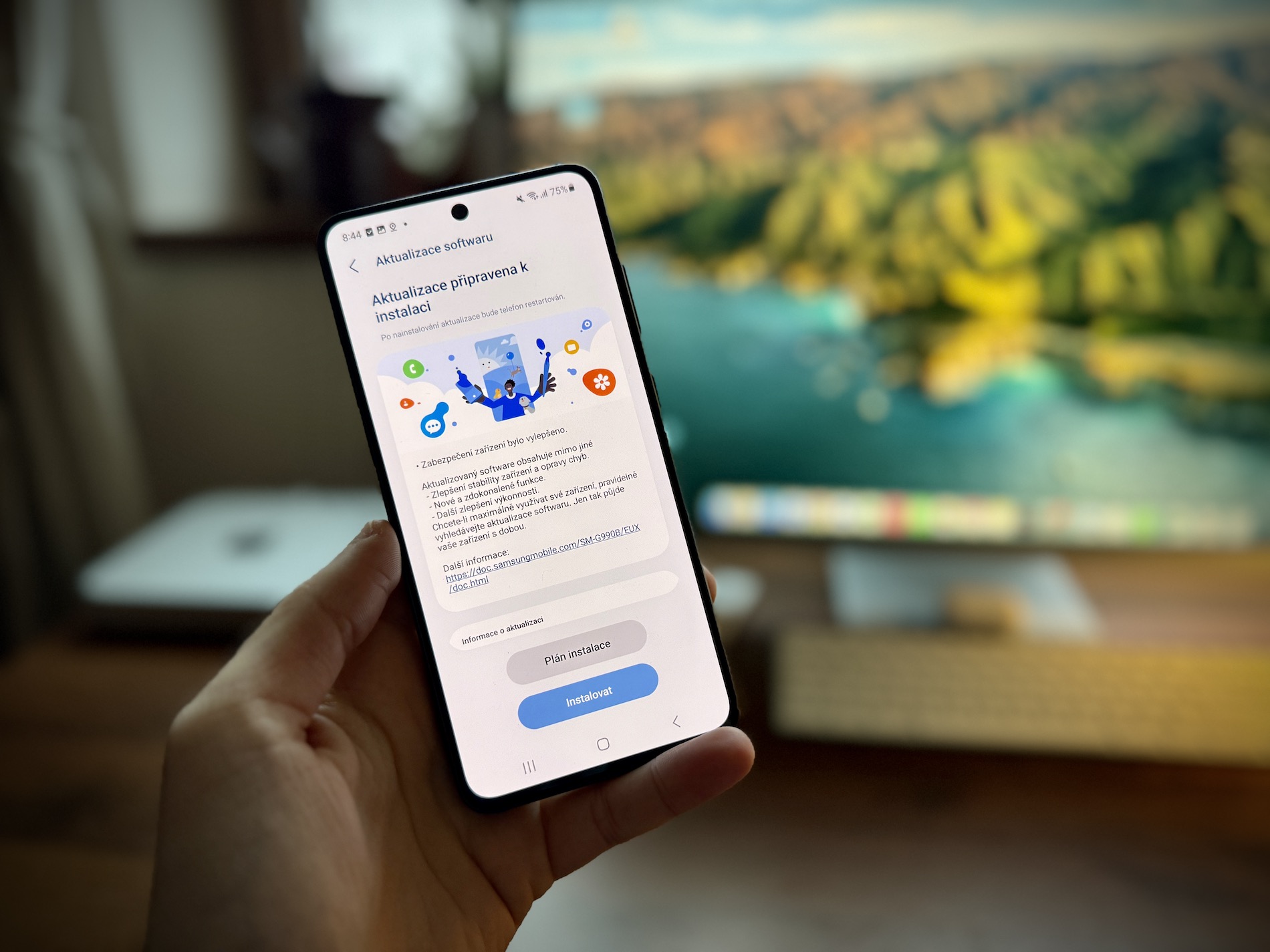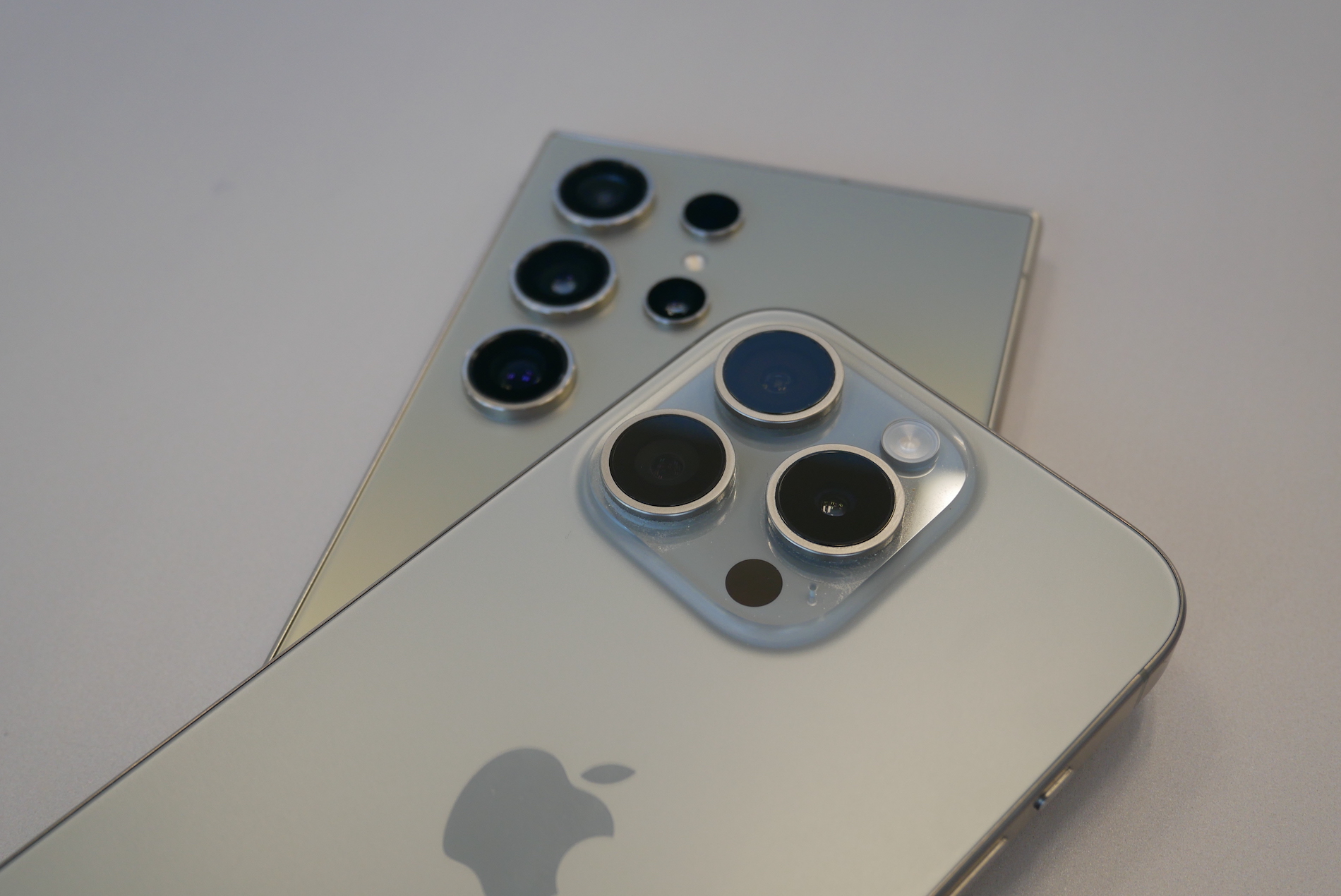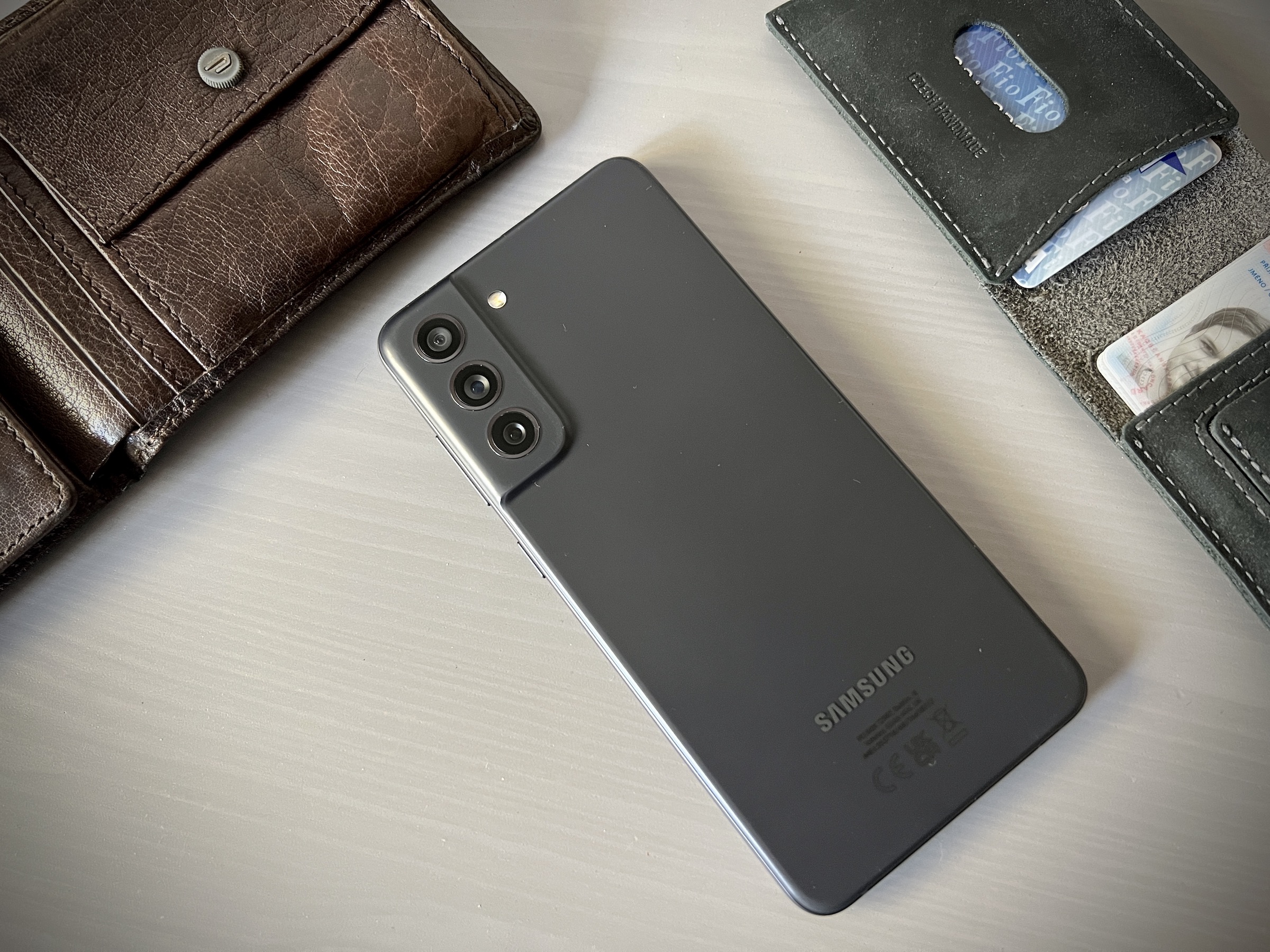Samsung published studii based on data collected from its Health app during the coronavirus outbreak to see how it has affected our sleep patterns. Many people have changed their sleeping habits during it, and new findings suggest that even though people have spent more time in bed in recent years, the quality of their sleep has decreased.
In the study, Samsung focused primarily on two factors: sleep duration and sleep efficiency. By sleep duration, the Korean giant refers to the amount of time people spend in bed trying to fall asleep. He then defines sleep efficiency as the percentage of time that people spent sleeping.
The study found that overall sleep efficiency decreased, despite people in all countries reporting longer sleep times during the pandemic. In other words, people spent more time trying to fall asleep and less time getting the rest they needed. In addition, the study found that sleep habits differ by age and gender. While both women and men spent more time resting in bed during the pandemic, men experienced greater reductions in sleep efficiency than women. Sleep efficiency decreased with age, but people aged 20–39 were found to have higher sleep efficiency.
You could be interested in
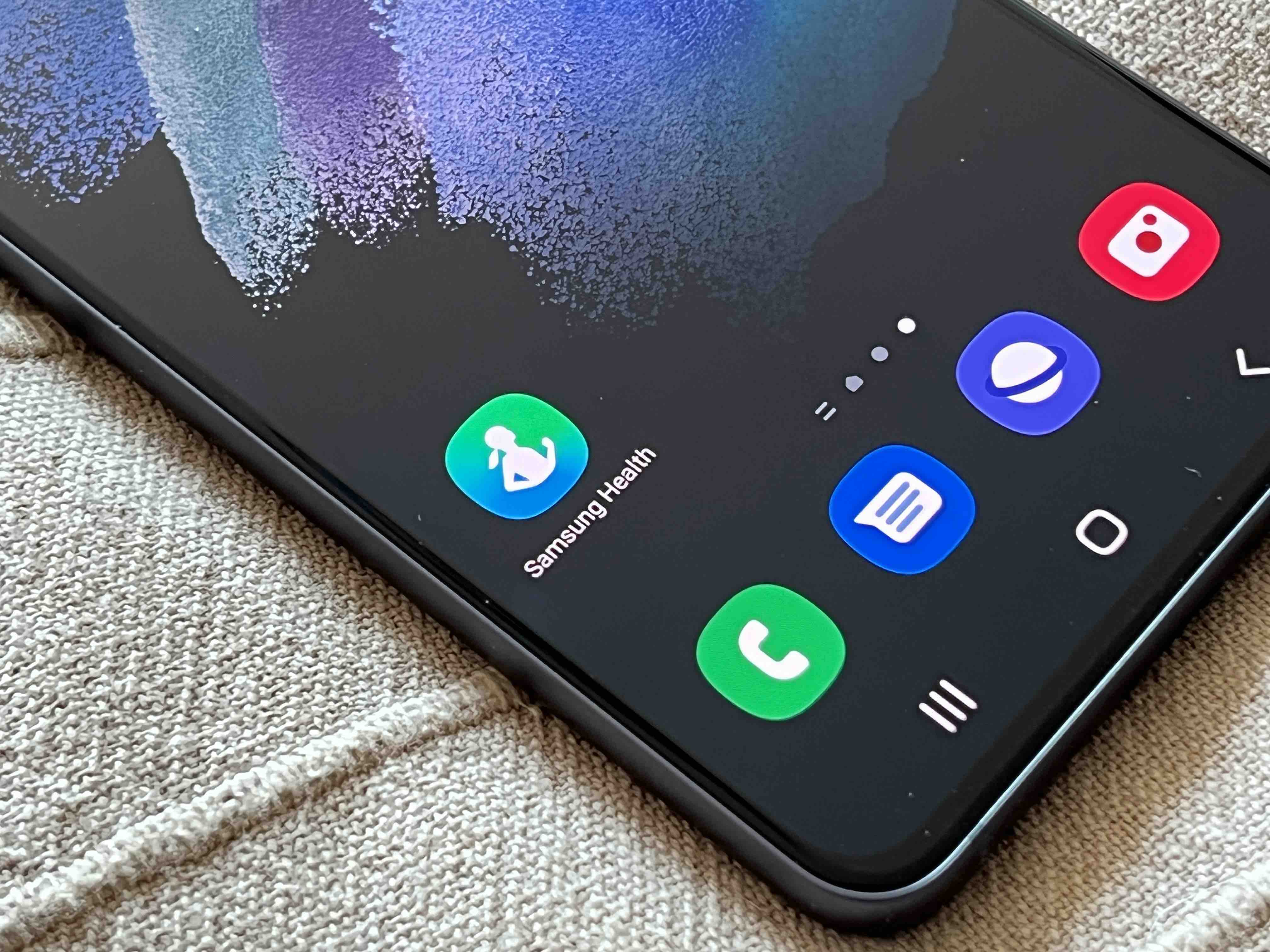
Through the Health app, Samsung investigated the sleep habits of users from 16 countries, including the US, Germany, South Korea, France, Italy, Spain, India, Argentina, Brazil and Mexico. In France, the duration of sleep was the longest, but its efficiency decreased. In South Korea, Samsung saw "one of the largest increases in sleep length and efficiency," while users in the US found the largest decrease in sleep efficiency of any country included in the study. Users in Mexico experienced the biggest change in their bedtimes and wake-up times, with an average of 11 minutes of sleep change, while waking up 17 minutes later.
